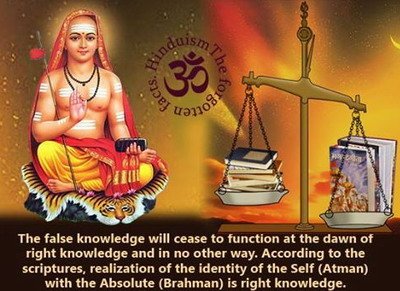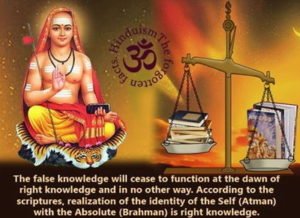A Rationale for Hinduism as a Societal Structure


 Essentially as we have no actual knowledge of the who we are in terms of our where and why in the universe, we must fall back to questioning the essentials of our existence as has happened within Hinduism.
Essentially as we have no actual knowledge of the who we are in terms of our where and why in the universe, we must fall back to questioning the essentials of our existence as has happened within Hinduism.
Firstly we are confined to planet Earth, to our physical bodies and to a lesser extent to a local area of habitation. While we have increased in numbers to populate the globe and establish social and trade networks, the latter are not essential for our wellbeing as local regions provide the necessities for life.
The basic necessities are food and shelter with protection from hostile organisms perhaps lower on the food chain or less evolved in terms of having any similar ability to create on a human scale. But lets not forget all life has a similar innate intelligence as we do albeit a differently shaped capacity to survive, communicate and affect local environments.
Fungi is an excellent example of an organism evolving a highly complex and mutually beneficial communication system in conjunction with other organisms, and clearly humans are not the only evolved species and certainly not the most evolved species yet we may have the potential to become so if we could “get our shit together”.
Though we are highly creative, Humans so often invest more energy in seeking to control and acquire as per our perception and desires dictate. Yet our needs like all life form are basic, we need food, shelter and mates to breed with plus the social structures for education though learning to be responsible and creative is somewhat instinctive.
Hinduism offers the essentials of life in co-operation with a good educational structure and one aspect comes from yoga – the ability to know the workings of our inner consciousness and reverence to evolve this inner knowledge as a science corresponding to the physical sciences.
Evolution and Earth History.
While we may disagree as to the nature and origins of the universe, it is clear there was an evolutionally process that led to the formation of our solar system and life on earth. We may have evolved on earth as Darwin suggested or we may have evolved elsewhere and been planted here, whatever, we have been evolved and created highly sophisticated societies over a long time, perhaps 50,000 years or more.
These societies were destroyed during the Younger Dryas, a period when perhaps Earth was bombarded from space, the ice melted and sea levels rose. Within a few generations most survivors reverted to that of hunter gatherers and a great deal of technology was lost. Yet there seems little doubt that following the destruction, survivors of considerable standing taught groups of survivors the basics not only of survival but how to construct stable and creative societies with the technical ability to explore the visible universe and the importance of exploring our internal universe.
It’s my understanding that for a time the human world was relatively harmonious and governed by a sense of Dharma cantered on a Greater India, but this was shattered by a dissatisfied faction who had succumbed to their more base desires and assuming the reality of the eyes and ears was the only truth. The leadership became aware of an inner spiritual need and in order to maintain control, they invented religions.
That was reflected in the biblical garden of Eden story and the tragedy of Omar in which greed became a dominant manifestation and continues to plague the modern world.
Enter Hinduism:
It’s said the some 15000 years ago various teachers appeared – they were perhaps the last of a lost civilisation who taught the basics of agriculture and society building though more importantly it was Shiva who’s focus was more on teaching the technology of being human and how to create a social structure where every individual could participate in the creation with equal opportunity.
The concept of Sanatana Dharma was born and a civilisation still existent today emphasises spiritual appreciation as a prerequisite and background to social structure thus creating a ‘flat’ or communal society with the only hierarchy being in the fields of spiritual, scientific and creative expertise. The phrase ‘as above so below’ reflects the tractile shape of nature and an increasingly common perception that reality can be viewed as holotropic.
Hinduism emphasises that since we are born naked and can’t take anything physical into any afterlife that may exist, there is no point in collecting and accumulating stuff, rather we should better appreciate life, internal and external with our desires directed towards supporting life and the lives of our fellow humans.
In terms of the collective, life is democratic and otherwise communal with the welfare of all a priority. In this regard knowing planetary history is important as a survival tool. By knowing sufficient numbers may survive any disaster and disasters are certain though we know not when as our memories are too short and with focus on satisfying selfish desires, the lessons from the past although drawn onto the landscape have been overlooked and whitewashed from history.
How to define Hinduism?
Given that India has been divided, occupied and plundered by hostile forces over the past 1200 years, it endures despite gross misrepresentation – false opinions that most accept as unquestionable truths. Life was never ‘universally perfect’ but most importantly the quest for inner knowledge and experience was supported, and that contributed to a great advancement in human understanding and the physical sciences.
Further reading:
What Is Dharma
Hinduism Can Save The World Pt 1
Hindu Sanatana Dharma “Toolkit For World Peace” (Part 1 Of 5)
DISCLAIMER: The author is solely responsible for the views expressed in this article. The author carries the responsibility for citing and/or licensing of images utilized within the text.
